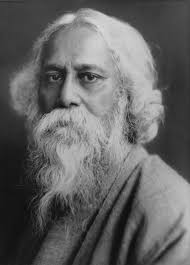Sample Descriptive Writing : Why do Private banks enjoy more Capital -Profit ratio than Public sector banks?
Want to Become a Bank, Central / State Govt Officer in 2020?
Join the Most awarded Coaching Institute & Get your Dream Job


Now Prepare for Bank, SSC Exams from Home. Join Online Coure @ lowest fee
Lifetime validity Bank Exam Coaching | Bank PO / Clerk Coaching | Bank SO Exam Coaching | All-in-One SSC Exam Coaching | RRB Railway Exam Coaching | TNPSC Exam Coaching | KPSC Exam Coaching
Sample Descriptive Writing :Why do Private banks enjoy more Capital -Profit ratio than Public sector banks?
Uneasy lies the head that wears the crown! While in the public sector banks, the Government of India holds upto 51% of the shares, in the private sector banks, individuals and private companies hold a lion’s share. The Government, being under the compulsion of ensuring the implementation of the salient features of the Constitution, is duty-bound to formulate the methodology of managing the banking sector finance. Needless to add that the focus of the Government is on social reforms that is enshrined in the Constitution. In practice, the policies of the public sector banks are required to be in tune with those of the Government.
Whereas the private sector banks focus their attention on limited capital and huge profits, the public sector banks are at times constrained to invest their funds in loss-making or no -Profit projects. For instance, opening a branch in a remote hamlet where no branch of any bank has been opened. The decision making is faster in the former than in the latter.Any expenditure pertaining to growth plan is spontaneously approved by the management of Private banks whereas any such process is fraught with delay on account of red-tapism that dominates the administration of public banks. As Government social schemes are implemented through the management of public banks the question of profit is ruled out in such cases. The question of NPAs is adding fuel to the fire of constraints.
These are a few hurdles that affect the capital -Profit ratio of the public banks. On the other hand, Private banks which enjoy absolute freedom of decision -making do have a edge over their Public counterparts. The lure of profit is the motivation for banks run by private sector whereas Profit -with -service is the motto of the public banks.
Descriptive Writing : THE RED SIGNAL FOR THE RED-BEACON
Article Courtesy :
Mr. Gopalakrishnan
33 years experienced CPSU Officer (Retd.)
He is an expert in handling General English, Quantitative Aptitude and Interview programs.





1 comment
These are peripheral observations. A lot more lies in the success or failure oF PSBs.
N. Chandrasekharan
Retd SENIOR EXECUTIVE
PSB
nchandrasekharan@hotmail.com